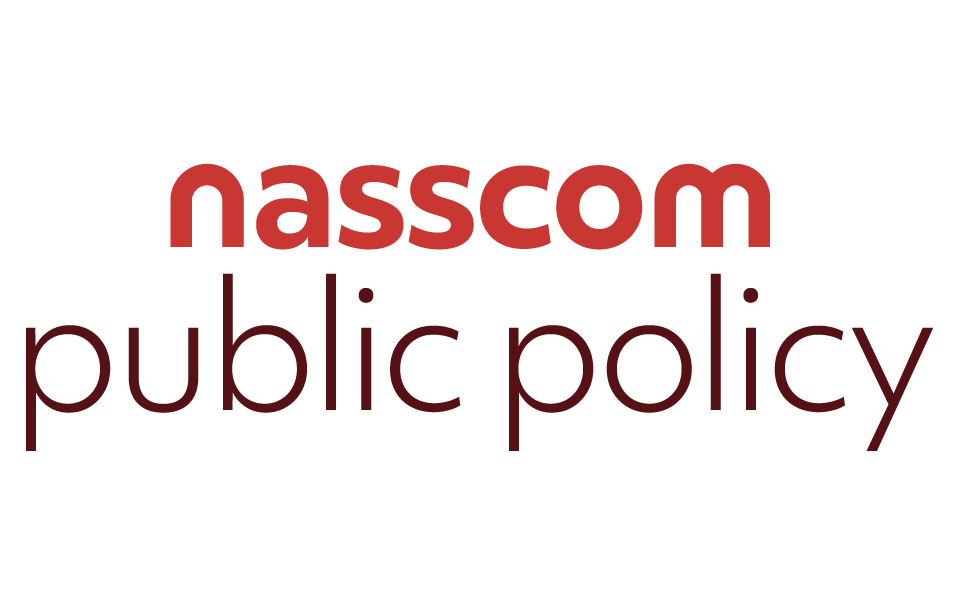Context
On 2 September 2019, a Steering Committee headed by Secretary, Department of Economic Affairs (DEA), Ministry of Finance submitted its final report on fintech related issues to the Finance and Corporate Affairs Minister Nirmala Sitharaman. The committee has recommended setting up of a taskforce on data protection in the financial sector, an inter-ministerial steering committee on fintech applications in government financial processes and applications, ministry-level fintech working group to assess the potential of using GovTech and fintech applications in their ministry/department, setting up virtual banks and reformed KYC processes, among others.
The committee was constituted on 5 March, 2018 in pursuance to the announcement made by the then Union Minister of Finance and Corporate Affairs Arun Jaitley in his Budget Speech 2018-19.
The objective of this committee was to consider various issues relating to development of fintech space in India with a view to make fintech related regulations more flexible and generate enhanced entrepreneurship in an area where India has distinctive comparative strengths vis-vis other emerging economies. It also focused on how fintech can be leveraged to enhance financial inclusion of MSMEs.
Members of the committee include; Secretary, Ministry of Electronics and Information Technology (MeitY), Secretary, Financial Services, Secretary, Ministry of Micro, Small and Medium Enterprises (MSME), Chairperson, Central Board of Excise and Customs (CBEC). Besides, the Deputy Governor of RBI, Executive Director of SEBI, CEO of the Unique Identification Authority of India and CEO of Invest India are also a part of this panel. Additional Secretary (Investment) in Economic Affairs Department is the convener of the panel.
Key recommendations of the committee:
- Consumer Protection framework: The Committee recommends that a legal framework for consumer protection be put in place early keeping mind the rise of fintech and digital services. The legal framework needs to address risks specific to the digital environment, ensure consumers of digital financial services have meaningful choice and control over their personal data—including through informed consent, require that data not be used in an unfair discriminatory manner in relation to digital financial services, confusing user interfaces that raise the risk of mistaken transactions; inadequate security of systems; irresponsible lending through digital channels; online frauds, system downtime that prevents access to funds; unclear or limited recourse systems; potential misuse of AI/ML, etc. It further recommends enacting such a law early keeping the rise of financial technologies in view.
- Fintech advisory council in each financial sector regulator: The Committee recommends that every financial sector regulator should constitute an Advisory Council on fintech to bring together industry leaders and fintech experts, who can identify viable ways to provide inputs periodically to modernize the regulatory architecture, develop use-cases for RegTech and SupTech, design better risk management systems, sharing innovation and consumer protection standards.
- Taskforce on data protection in the financial sector: The Committee is of the opinion that the provisions of the proposed draft Data Protection Bill, 2018 may have far-reaching implications for the growth of fintech sector. The Committee accordingly recommends a taskforce in the Ministry of Finance may be set up with the participation of the regulators and make suitable recommendations to safeguard the interests of consumers, while also enabling a positive climate for innovation.
- Inter-regulatory coordination on fintech: In addition to the creation of a regulatory sandbox by each regulator, there is a need for inter-regulatory coordination to support hybrid financial products and common distribution, where licensing or regulatory requirements of more than one regulator may have to be complied with, development of common standards on RegTech and SupTech, consumer protection measures, sandboxes, etc. The Committee recommends that Inter-Regulatory Technical Group (IRTG) set up under the FSDC Sub-Committee should be the forum for such inter-regulatory coordination.
- Inter-Ministerial Steering Committee on fintech in the financial sector: The Committee recommends that an inter-ministerial steering committee on fintech applications be set up in DEA, Ministry of Finance, to continue to carry on the tasks of implementing this report; including exploring and suggesting the potential applications in government financial processes and applications, particularly accounting and asset management, welfare services, taxation, and handling citizen grievances.
- Ministry level fintech working groups: Considering the potential use-cases of fintech in enabling application and delivering non-financial services across the wider government, the Committee recommends that every department/ministry in the government may create a ministry-level fintech working group to assess the potential of using GovTech and fintech applications in their ministry/department.
- Inter-ministerial group on fintech: The Committee recommends that an Inter-ministerial group on fintech be established at MeitY, for exploring and suggesting the potential applications of the underlying technologies (such as open APIs, blockchain, robo-advisories, big data analytics, NDSAP etc.) in government processes, particularly in accounting and asset management, welfare services, taxation, and handling citizen grievances. The group will also make recommendations on technology choices, providing inter-ministerial inputs to fintech Working Groups in each Ministry on the requirements of different departments. It can perform the role of periodically reviewing the technological systems and scope for introduction of new technologies in a coordinated manner across the Central Government.
- Removing discriminatory regulatory barriers in the digital payments infrastructure sector: Digital payments have the potential to expand enormously. To realise the full potential, a level playing field needs to be created amongst banks and non-bank players. The NPCI may provide non-discriminatory access to fintech firms and other financial firms that are not currently shareholders of the NPCI, the committee said. Restrictions on non-bank’ access to payments infrastructures, such as AEPS, needs to be re-evaluated and appropriate steps need to be taken. RBI may also take necessary measures and if and when Payment and Settlement Board comes into existence, the calibrated liberalisation may be continued by the Payment and Settlement Systems Board to achieve the goal of bringing in financial inclusion, make digital payments as the primary mode of payment and usher in competition amongst various service providers.
- Flow-based lending for MSMEs: The Committee recommends that GSTN data integrated with TReDS exchanges could form the basis of a flow-based lending system for MSMEs by banks and NBFCs. However, cash flow-based lending will need superior fintech based systems to track the borrower for providing early warning signals given that there is no collateral backup (available in normal asset-based loans). There is need to promote greater participation of financial institutions, buyers, sellers on the TReDS platform and fine-tune the guidelines to enable the system to gain acceptance. The Committee recommends that DFS, MeitY, DoR/CBIC/GSTN can develop necessary open API MSME stack based on TReDS data validated by GSTN for use by the fintech companies. It is also recommends that RBI may evolve master directions for “cash flow-based” financing of MSMEs by financial services companies, using a standardised and trusted e-invoice infrastructure designed around TREDS-GSTN integration. The Committee notes that the Factoring Act, 2011 restricts participation on TReDS platform to those NBFCs that are licensed as NBFC-Factors. It is recommended that, in order to promote greater participation of NBFCs on TReDS platform, this legal barrier be examined by the Government.
- Fintech for cybersecurity, fraud control & AML: The Committee, guided by success stories elsewhere in the world, recommends the use of fintech, especially by PSE financial service companies to bolster cybersecurity, fraud control and anti-money laundering. The Committee also recommends that fintech firms specialising in this field should be encouraged to set up their businesses in India and provided necessary regulatory approvals for expanding their services in the country.
- Virtual banking: The Committee recommends that DFS and RBI may examine the suitability of ‘virtual banking system’ in the Indian context. The costs and benefits regarding allowing virtual banks should be explored to prepare for a possible future scenario where banks do not need to set up branches and yet deliver the full-scale retail banking services ranging from extending loans, savings accounts, issuing cards and offering payment services through their app or website.
- Dematerialisation of financial instruments: The Committee recommends that suitable regulatory and legislative changes be made to enable FDs and other financial instruments to be issued in dematerialised form and allow their frictionless use as collateral. The Committee recommends that the Government undertake a campaign to convert all financial assets held, especially by entities under its control like Post Offices, in demat form as far as possible but certainly in electronic form. Necessary suitable amendments to enable dematerialisation of financial instruments such as FDs and other deposits of the Post Offices, other forms of small savings certificates issued, Gold Deposit Certificates issued under GMS, Sovereign Gold Bonds, etc. may be undertaken. Similarly, deposits made under schemes like Sukanya Samriddhi Yojana in the name of individual beneficiaries should also be dematerialised. Additionally, all necessary administrative action to convert the existing stock of such deposits and certificates may also be taken in a time bound manner. Pending changes in laws and regulations that may be required to enable depositories to store all financial assets, the information pertaining to the assets may be stored in repositories, so that consumers can access this information through a single window.
- Reform of Pre-paid instruments (PPI) system: The Committee recommends a thorough review of the PPI system with a view of considerably liberalising its use with adequate non-monetary limits safeguards to enable expansion of fintech. For example, the maximum outstanding amount at any point of time in a PPI account (even if it is a full KYC account) ?1 lakh. This limits consumer benefits from such accounts and reduces the ability of PPI issuing firms to on-board customers. As deposits in PPI do not earn any interest, any apprehension that these might replace the banking system may not be well founded. Only those persons will hold amount higher than ? 1 lakh in the PPI account that have genuine payment needs. UPI, linked to bank accounts, has no such restrictions. There is a case for substantially revising this limit upwards.
- Reformed KYC process in the light of the recent Supreme Court judgement on Aadhaar: The Committee recommends that various options, including possibility of Video-based KYC, making available validated electronic versions of KYC related documents through DigiLocker, making these available for verification by service providers with prior customer consent, etc., may be considered early.
- Open APIs: The Committee recommends that MEITY coordinate the process of identification of the datasets that can be shared through open APIs, setting targets for the creation of such APIs by the relevant Ministries while enabling and supporting Central, State and Local governments to create relevant open APIs. The Committee also recommends that greater nudge from all regulators combined with development of open API eco system will enable account aggregator services to take off.
- Artificial Intelligence for back-end processes: The Committee recommends that Department of Financial Services (DFS) and PSU banks may work together to explore significant opportunities that exist to increase the levels of automation using Artificial Intelligence (AI), cognitive analytics and machine learning in back-end processes of PSU banks. The focus should be especially on risk management, compliance management and fraud control, and make a roadmap to implement the strategy in time bound manner. Implementing such technology-automated systems will bring in more efficiency to their work and reduce fraud and security risks.
- Public sector block chain-based trade finance: The Committee feels that digitising the supply chain can remove the inefficiencies and lower risks in trade finance in India, by solving the issues of authentication of identity of companies, authorisation of signatories, and validation of documents, ownership validation and payments. A few IT solutions companies and private sector banks have already offered solutions. The Committee accordingly recommends that the Ministry of MSME should work with DFS and RBI for testing and implementing block-chain solutions in trade finance for MSMEs in public sector banks as well.
- Digitisation of Land Records: The country needs a dedicated National Digital Land Records Mission based on a common National Land Records Standards, which should deliver common standards, based land record data within a 3-year deadline. For this purpose, a steering committee comprising of Department of Economic Affairs, Department of Financial Services, Ministry of Agriculture, Ministry of Rural Development, Department of Land Resources and MEITY with involvement of State Land and Registration departments should be constituted to draw up a blueprint for doing so.
- Re-engineering Legal Processes for the Digital world: The Committee recommends review by Department of Legal Affairs of all such legal processes that have a bearing on financial services and consider amendments permitting digital alternatives in cases such as power-of-attorney, trust deeds, wills, negotiable instrument, other than a cheque, any other testamentary disposition, any contract for the sale or conveyance of immovable property or any interest in such property, etc., (where IT Act is not applicable), compatible with electronic service delivery by financial service providers.
- Regulatory Sandboxes: The Committee recommends that regulators should introduce mechanisms, such as regulatory sandboxes and laboratories that enable learning and adaptation of regulatory responses, which can play an important role, without further delay, in order to maintain India’s competitive edge.
- Open Data for enhancing competition: As seen from the example of Open Data Regulations in the UK banking sector, opening up customer data with consent safeguards can help promote competition in financial services and unlock greater efficiency. Taking note of this, the Committee recommends that RBI may consider making available banking data (such as transaction and account history data) for use by the financial sector, including fintech firms, (based on consumer consent and with other appropriate safeguards) through APIs. It also recommends that all financial sector regulators study the potential of open data access among their respective regulated entities, for enhancing competition in the provision of financial services.
- Mandatory use of Central KYC Registry: In light of representations made by multiple stakeholders, the Committee is of the opinion that e-KYC has the potential to reduce customer on-boarding and servicing costs significantly. It therefore recommends that all financial sector regulators fix deadlines for on-boarding existing KYC data to the Central KYC registry, make CKYC fully operational, and make KYC a digital and paperless process. At least the KYC data from the time the concept of Officially Valid Documents was introduced vide PML rules should be uploaded. In respect of legacy accounts, data may be uploaded by banks during the process of re-KYC. The Committee also recommends that there should be no charge for uploading KYC data, while every download can be priced based on the user pays principle. This will enable CKYC to take off early.
- Regulation Technology (RegTech): RegTech can reduce firm-level compliance risks and reduce supervisory risks. The Committee recommends that the financial sector regulators (RBI, SEBI, IRDAI, and PFRDA) must develop standards and use-cases for RegTech by financial sector service providers to make compliance with regulations easier, quicker and more automated for regulated entities.
- Supervisory Technology (SupTech) for Regulators: SupTech applications can be found in data collection, data reporting, data management and virtual assistance. The Committee recommends that each financial sector regulator must study the applications of SupTech, or supervisory technology efforts and evolve an institutional framework for developing use-cases, testing, deployment, monitoring and evaluation of SupTech.
- Fintech adoption in MUDRA: The Committee recommends that the MUDRA program needs to open up credit supply channels through non-banking fintech credit companies, besides mandating use of fintech by all players to enable ease of delivery of services such as AI/ML based credit scoring system for applicants leading to reduced risks and costs of lending.






















